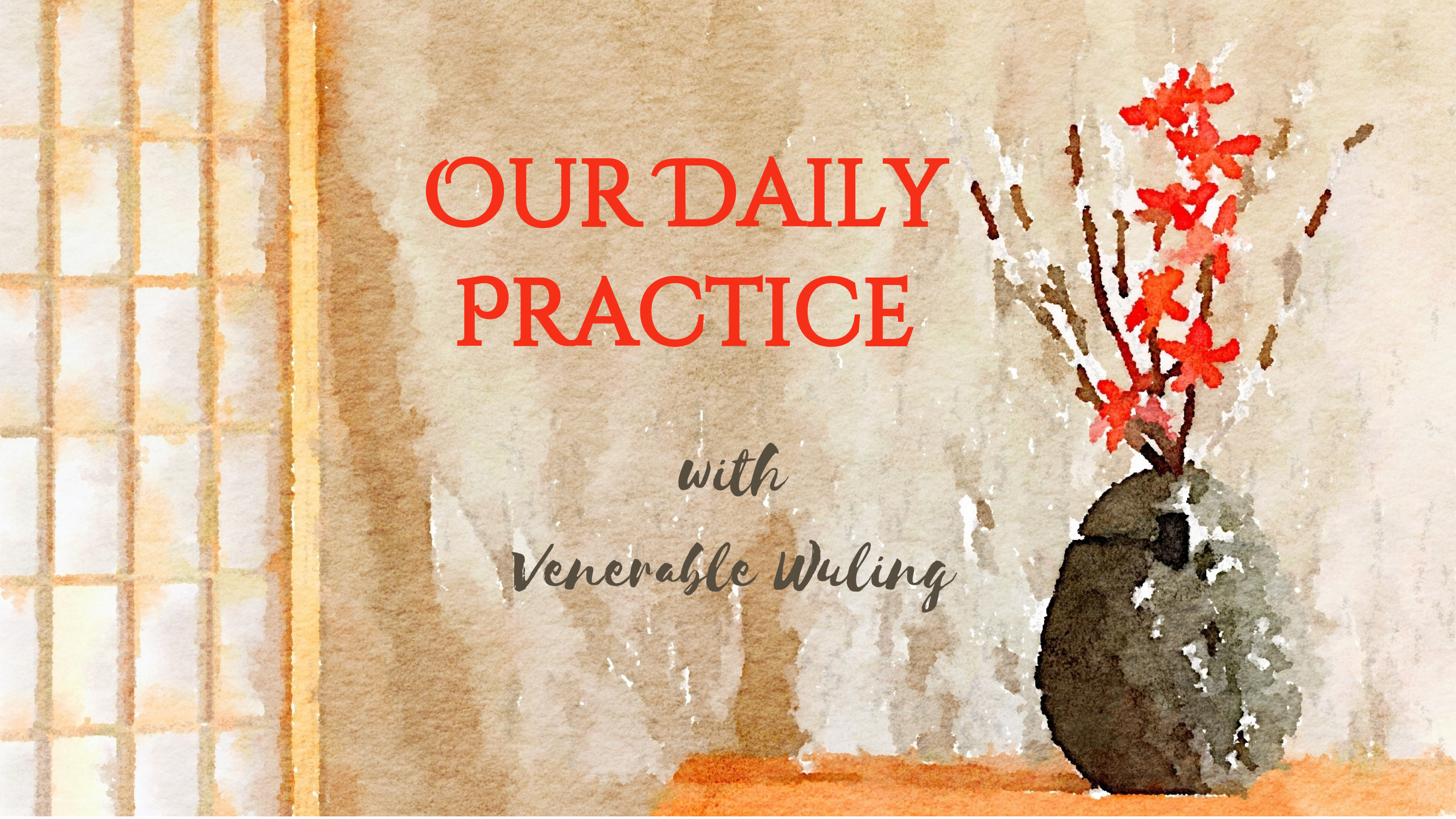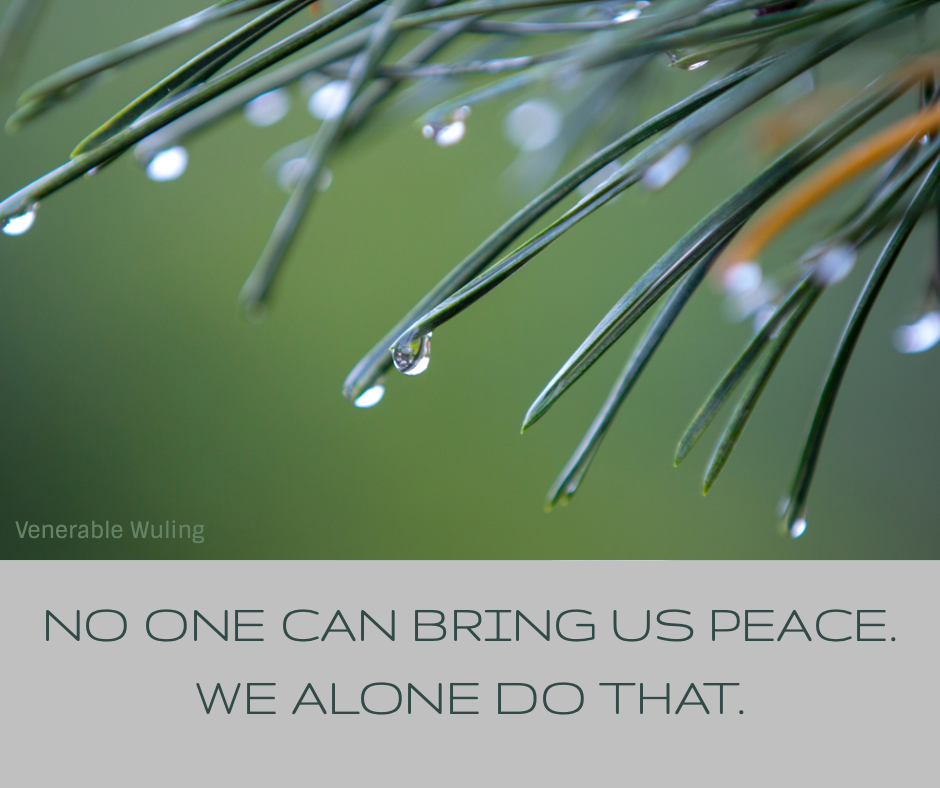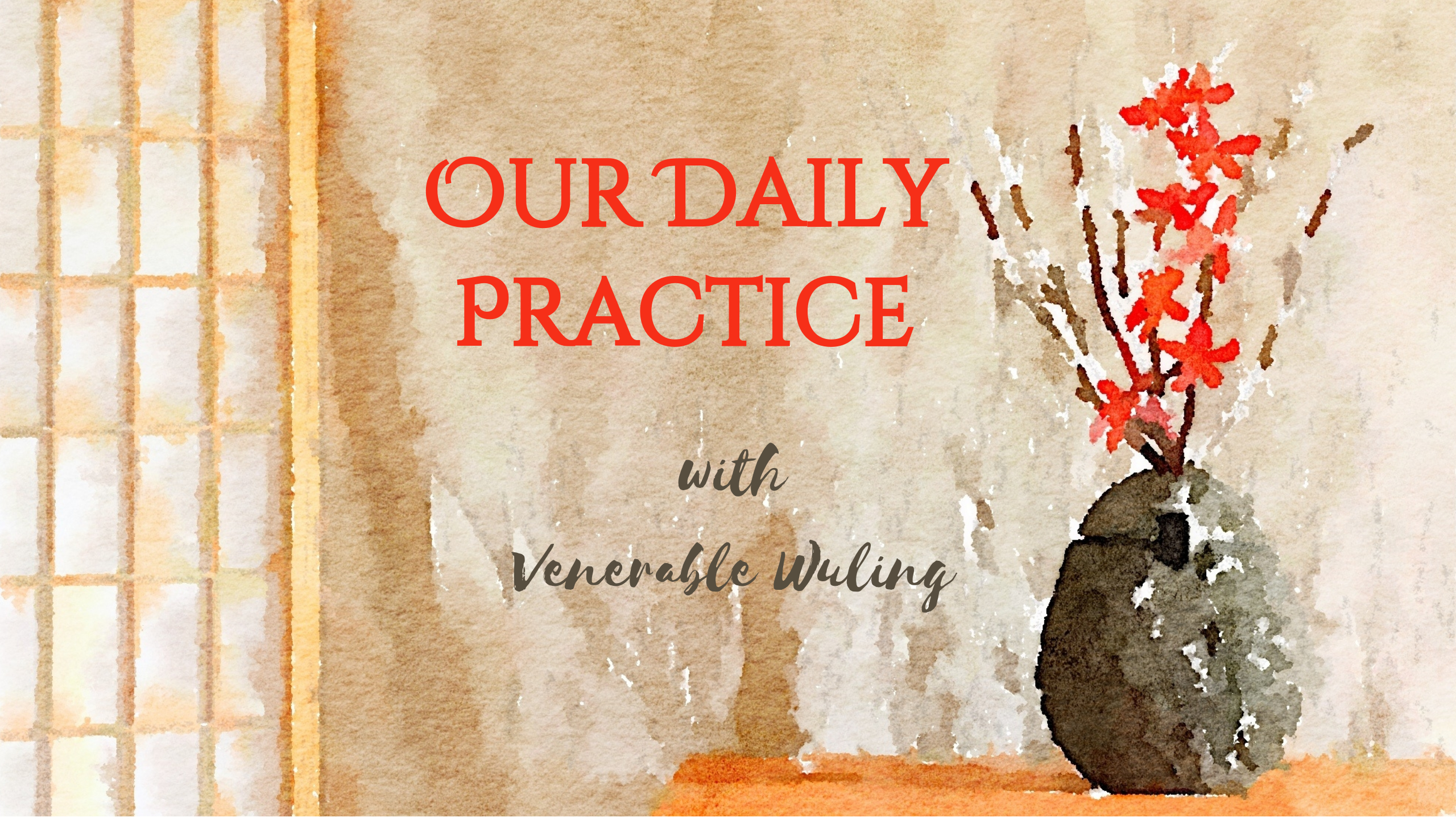Entries by Venerable Wuling (2144)
 March 26, 2024
March 26, 2024
 March 17, 2024
March 17, 2024 In the face of unfolding destiny,
we hold the future in our hands.
It can be very difficult to decide what to do when so much of what we encounter in life is grey and so little is black and white.
When faced with myriad choices, and none seem to clearly be the right one, we need to remind ourselves that we will end up doing what is destined to happen. And because of this, we may think that we do not have an active choice in the outcome. Unpleasantness? Merriment? It was destined to happen!
We are wrong. The part we play in the current unfolding destiny will go towards creating our own future destiny and is thus vitally important.
For instance, (1) did I hurt the person because I gave in to my anger and didn’t care what I said, and so the event unfolded as destined?
Or, (2) no matter how much I cared and tried to act wisely, my efforts failed. The event unfolded as destined: I hurt the person.
If I do the first, I’m walking the path of more suffering. If I do the second, I am on the path of reducing my future suffering.


